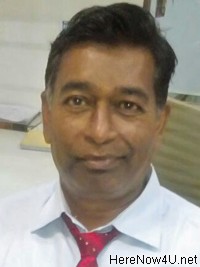
Maryada Mahotsav 2006 at Dhuri, Punjab
As per tradition, the 3 days programme of Maryada Mahotsav started with the appointment of nuns and monks for the Seva Kendras. Sadhvi Yashodhara asked H.H. Acharya Mahaprajna on behalf of all Sadhvis to give a chance to them to do service for old nuns. She explained the importance of this service in detail. Muni Jaykumar did the same on behalf of all monks.
Then H.H Acharya Mahaprajna announced the names of those nuns and monks who will give service in the Seva Kendras.
Two groups of Sadhvishrees are sent to four of the five Seva Kendra for nuns; to Rajaldesar one will be sent.
- Ladnun, the oldest and first:
The groups of Sadhvishrees Fulkumariji and Subhvatiji - Bidasar:
The groups of Sadhvishrees Mohankumariji and Sanyamji - Sri Dungargarh:
The groups of Sadhvishrees Yashodharaji and Peeyushprabhaji - Gangashahar:
The groups of Sadhvishrees Kanchankumariji and Kalashreeji - Rajaldesar
The group of Sadhvishree Trishalakumariji
One group of monks is sent to every of the three Seva Kendras for monks.
- Chhapar:
Group of Munishree Prashantkumarji - Charwas:
Group of Munishree Jambukumarji - Ladnun
Group of Munishree Kishanlalji
The general assembly of Terapanth lay followers Mahasabha took also place at Dhuri. Sri Rajkaran Sirohia, Kolkatta, was elected as its new president for the next two years; Sri Jaskaran Chopra, Surat, its new chief-trustee.
At Dhuri, 39 monks, 128 nuns, 104 Samanis and 1 Saman were present. All of them formed the traditional queue as per seniority in order of their Diksha. Their queue covered almost the whole gathering. This was a very eye catching scene.
Acharya Mahaprajna then spoke on development Vikas, order Maryada, and discipline Anushasan. All these cannot be separated, but are interlinked.
In another speech, he spoke on religion. Religion without morality will not serve its real purpose. It is the duty of religious heads to give direction to the society. He said, what we need is a non-violent revolution. Further, he explained that tolerance is reqired specially for those who live in joint families and asked newly wedded couples to practise tolerance towards each other. According to him, the most serious problems of the society are dowry, foeticide, divorce, and addiction to alcohol for overcoming these problems. He urged families to use the tool of training to increase tolerance. Only looking at the shortcomings in a person and to ignore his quality is not good.
Following this speech reminded me the book ‘I and Mine’, recently published in HereNow4U.
Dhuri, 03.02.2006
3rd February 1995 was the day, when his predecessor Gurudev Tulsi formally handed over Acharyaship to Acharya Mahaprajna. H.H. valued this day as reminder for his duty and responsibility towards the Sangh.
Then Acharyashree told the audience that a new manual for monks, nuns and Samanijis has been released.
Yuvacharyashree announced that the document is written like the modern standards of management systems, describing a democratic structure with duties and rights for all concerns.
For example, the administrative leaders of the Saman order will consist of a group of five Samanijis, Samanijis Akshay Pragya, Madhur Pragya, Mangal Pragya, Mudit Pragya, and Riju Pragya. They are supposed to work under the guidance of the head of the Samanijis, Samani Akshay Pragya. Samani Akshay Pragya was confirmed in her function as head of Samanijis, and her term was enlarged to five years according to the new arrangements. Before, there was a three years term for this function.
 Sushil Kumar Bafana
Sushil Kumar Bafana